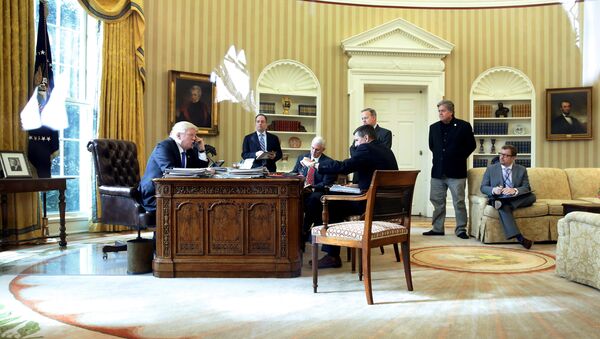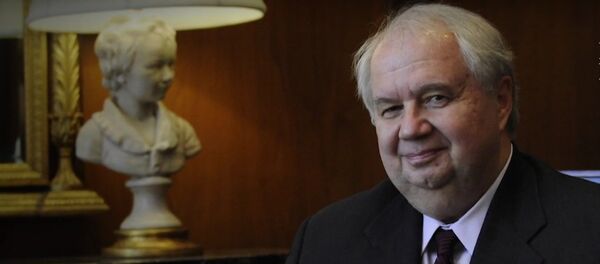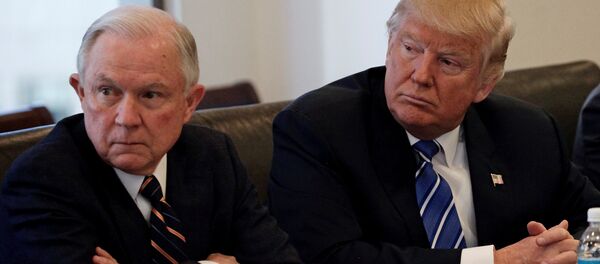US President Donald Trump's entourage is pushing ahead with the anti-Russian foreign strategy, Dmitry Novikov, First Deputy Chairman of the State Duma Committee on International Affairs, suggested.
"Trump's entourage not only wants but is making every effort to ensure that the previous administration's anti-Russian policy is continued," Novikov told Sputnik Saturday.
In this respect, by exerting further pressure on Russia they hope to gain certain economic benefits, according to Novikov.
"Therefore, it is naïve to think that the pressure on [Russia] will be dramatically decreased after the new administration [occupied the White House]," he remarked.
Earlier, Julie Pace of Associated Press reported, citing US administration officials, that Trump is likely to "shelve" his plan "to pursue a deal with Moscow on the Islamic State group and other national security matters."
"In conversations with diplomats and other officials, Trump and his aides have ascribed the new thinking to Moscow's recent provocations. But the reconsideration of a central tenet of the president's foreign policy underscores the growing political risks in forging closer relations with Russia, as long as the FBI investigates his campaign associates' connections to Moscow and congressional committees ramp up their probe of Russia's meddling in the 2016 election," Pace wrote.
On the other hand, the recent anti-Trump campaign which targets the US President and his aides over their alleged ties with Russia has seemingly borne fruit.
Speaking to MSNBC's Andrea Mitchel, former CIA Director John McLaughlin pointed out that there was too much at stake for the Republicans amid the ongoing scandal.
"When you look at the political heat it's been generating my experience in Washington tells me… it's going to be impossible for them to get beyond the partisan dimension of it. There is too much at stake politically, particularly for the Republicans," McLaughlin stressed.
The former CIA chief underscored that unless Trump dispels all doubts over his alleged connections with Moscow, his cabinet's cooperation with the Kremlin would be perceived with suspicion and the US President wouldn't have the freedom to maneuver that any leader "needs in dealing with a potential adversary."



